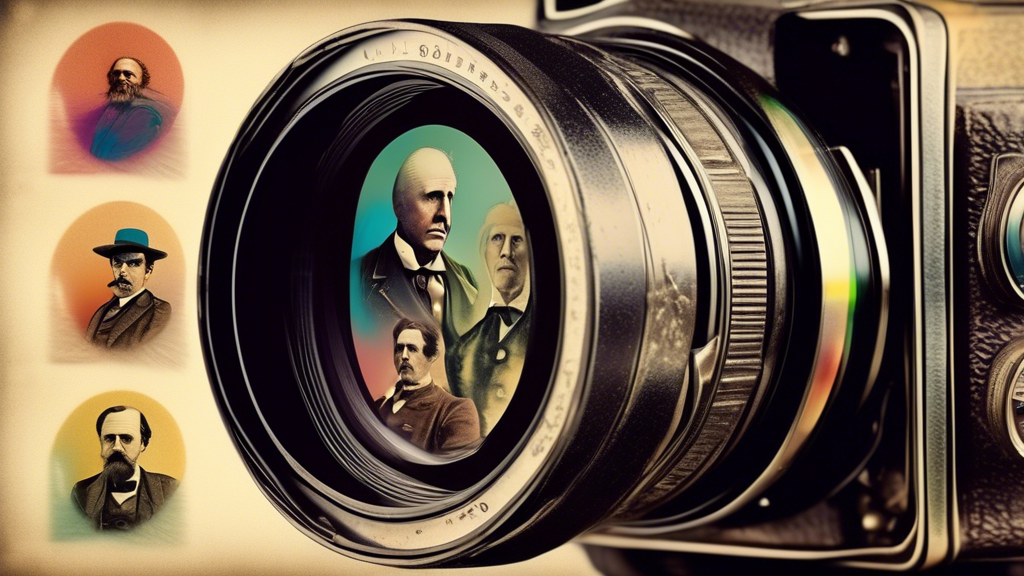
Elevate Your Small Business with Professional Photography: A Guide
Why Professional Photography is Essential for Small Businesses
In today’s visually driven world, high-quality photography is no longer a luxury—it’s a necessity for small businesses. Whether you’re a restaurant owner, a fashion boutique, or a tech startup, compelling visuals are crucial to capturing attention, building brand identity, and ultimately, driving sales. Here’s why investing in professional photography is a game-changer:
1. First Impressions Matter: Making a Strong Visual Impact
In the digital age, your website and social media profiles are often the first points of contact for potential customers. Blurry, amateurish photos send a message that your business is unprofessional or, worse, untrustworthy. Professional photography, on the other hand, instantly elevates your brand, creating a polished and credible image that instills confidence in your audience.
2. Showcasing Your Products and Services in the Best Light
Think about it: would you rather buy a product online with a poorly lit, uninspiring photo or one that showcases its features and benefits in stunning detail? Professional photographers have the skills, equipment, and artistic eye to capture your offerings in the most appealing way, highlighting their unique selling points and enticing customers to learn more.
3. Building a Cohesive and Memorable Brand Identity
Your brand is more than just a logo; it’s the overall feeling and experience you evoke in your customers. Professional photography plays a key role in shaping brand perception. By using consistent lighting, styling, and composition, you can create a visually cohesive brand identity across all your marketing materials, from your website to your social media to your print brochures. This consistency reinforces your brand message and makes it easier for customers to recognize and remember your business.
4. Standing Out from the Competition
In a crowded marketplace, it’s crucial to differentiate your small business from the competition. While your competitors might be relying on generic stock photos or low-quality smartphone pictures, professional photography can give you a significant edge. Unique, high-quality visuals help you stand out, grab attention, and communicate your brand’s value proposition in a way that resonates with your target audience.
Types of Professional Photography for Small Businesses
Now that you understand the importance of professional photography, let’s explore the different types of photography that can benefit your small business:
1. Product Photography: Showcasing Your Products in All Their Glory
Whether you sell handmade jewelry, artisanal chocolates, or innovative tech gadgets, high-quality product photography is essential for online stores, catalogs, and marketing materials. Professional product photographers use specialized techniques, such as macro photography for intricate details and lifestyle photography to showcase products in context, to create visually appealing images that drive sales.
2. Headshots and Team Photos: Putting a Face to Your Brand
People connect with people. In today’s digital age, it’s more important than ever to put a face to your brand. Professional headshots of you and your team members build trust and credibility. They’re essential for your website’s About Us page, LinkedIn profiles, and speaker bios. Consider investing in team photos that capture your company culture and the personalities behind your brand.
3. Interior and Exterior Photography: Inviting Customers to Your Space
If you have a physical storefront, restaurant, salon, or office space, showcasing its ambiance and aesthetic is crucial. Professional interior and exterior photography can entice customers to visit you, giving them a glimpse of your brand experience before they even step through the door. High-quality images of your space are also valuable for Google My Business listings, local SEO, and attracting new customers in your area.
4. Event Photography: Capturing Memorable Moments
Hosting a product launch, conference, workshop, or corporate event? Event photography helps you document these occasions, capturing the energy, excitement, and key moments. These images can be used for social media marketing, blog posts, email newsletters, and even internal communications to celebrate successes and foster a sense of community.
5. Behind-the-Scenes Photography: Building Authenticity and Connection
Consumers today crave authenticity. Behind-the-scenes photos and videos give your audience a glimpse into your company culture, your values, and the people behind your brand. Share snapshots of your team working on a new project, the creative process behind your products, or your participation in community events. This transparency fosters trust, builds connection, and humanizes your brand.
Finding and Working with a Professional Photographer
Finding the right photographer is crucial for achieving your desired results. Here’s a step-by-step guide to help you through the process:
1. Define Your Needs and Budget
Before you start your search, clearly define your photography needs. What type of photography do you require? What is your budget? Having a clear understanding of your requirements will help you narrow down your options and find a photographer who aligns with your vision.
2. Research and Gather Referrals
Ask for recommendations from fellow business owners, friends, or family. Explore online directories, such as Yelp and Google My Business, for local photographers. Check out the websites and portfolios of potential photographers to assess their style, experience, and expertise.
3. Schedule Consultations
Once you’ve shortlisted a few photographers, schedule consultations to discuss your project in detail. This will give you an opportunity to ask questions, gauge their communication style, and ensure they understand your vision and budget.
4. Review Contracts and Usage Rights
Before finalizing any agreement, carefully review the photographer’s contract. Pay attention to usage rights, deadlines, deliverables, and payment terms.
5. Prepare for Your Shoot
Once you’ve hired a photographer, communicate your vision clearly, providing mood boards, examples, and specific shots you’d like them to capture. Prepare your products, location, or team members in advance to ensure a smooth and efficient photoshoot.
Making the Most of Your Professional Photos
After investing in professional photography, it’s crucial to maximize your return on investment. Here are some tips to effectively leverage your stunning new visuals:
1. Optimize for Your Website
Use high-resolution images on your website, ensuring they’re optimized for fast loading times. Compress images without compromising quality to avoid slow loading speeds, which can negatively impact your website’s SEO.
2. Enhance Your Social Media Presence
Share your professional photos on your social media platforms, using relevant hashtags and engaging captions to attract your target audience. Consider creating visually appealing graphics and Instagram Stories to further showcase your brand and products.
3. Elevate Your Marketing Materials
Incorporate your professional photos into your marketing materials, such as brochures, flyers, presentations, and email newsletters, to make a lasting impression on potential customers.
4. Refresh Regularly
Keep your visuals fresh and up-to-date. Don’t be afraid to update your website and marketing materials with new photos periodically to reflect your evolving brand and offerings.
Conclusion
Professional photography is a powerful investment for small businesses looking to elevate their brand, attract customers, and stand out in a competitive market. By understanding the different types of photography, finding the right photographer, and effectively leveraging your visuals, you can create a cohesive and impactful brand identity that resonates with your audience and drives business growth.





